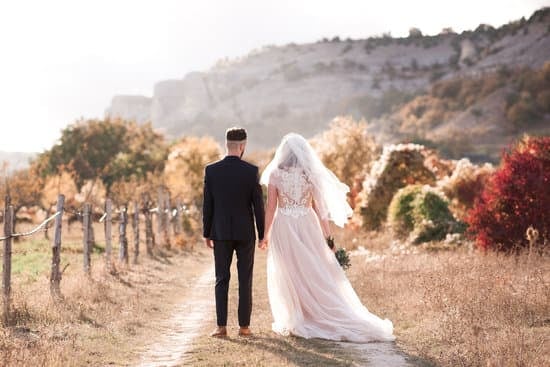When should you RSVP for a wedding? The question of when to respond to a wedding invitation is crucial, as it sets the tone for the entire event. Understanding the importance of RSVPs for weddings and navigating proper protocol is essential to ensure a successful and stress-free celebration.
In this article, we will explore why RSVPs matter, etiquette and expectations for responding, the ideal timeline for sending in your RSVP, factors to consider when determining your timing, and tips for responding promptly. Whether you’re a guest or the host, being informed about wedding RSVPs is key to a seamless and enjoyable experience.
RSVPs play a significant role in planning any wedding. They not only help couples finalize their guest list and seating arrangements but also assist with catering decisions and overall organization of the event. By exploring the impact of timely responses, we can better understand how essential it is for guests to RSVP promptly. We will also discuss how late RSVPs and last-minute regrets can create unnecessary stress and complications for soon-to-be newlyweds.
Throughout this article, we will delve into the etiquette and expectations surrounding wedding RSVPs. Navigating proper protocol when responding to an invitation is crucial in ensuring that both hosts and guests have a positive experience leading up to the big day. By understanding these important considerations, all parties involved can enjoy peace of mind in knowing that they have fulfilled their responsibilities in a thoughtful manner.
Why RSVPs Matter
The significance of RSVPs for weddings cannot be overstated. These responses determine crucial details such as seating arrangements, catering needs, and overall guest count. Timely RSVPs are essential for couples to plan and execute their special day smoothly. When should you RSVP for a wedding becomes a pivotal question in ensuring that the occasion runs seamlessly for both the hosts and the guests.
According to traditional wedding etiquette, guests are expected to RSVP within two to three weeks after receiving an invitation. This gives them ample time to check their schedules, make necessary arrangements, and respond promptly. However, certain factors may influence this timeline, such as destination weddings, holiday weekends, or if the couple has requested an earlier response date.
It’s important to consider not just the suggested deadline provided on the invitation but also any additional factors that may affect your ability to respond in a timely manner. Always keep in mind that failing to RSVP on time can create inconveniences for the couple as well as impact their budget and planning. Therefore, it’s crucial to be mindful of when you should RSVP for a wedding and make every effort to adhere to the specified timeline.
| RSVP Timeline | Wedding Type |
|---|---|
| 2-3 weeks after receiving the invitation | Traditional local weddings |
| 4-6 weeks before the wedding date | Destination weddings or holiday weekend weddings |
By understanding the importance of timely responses and adhering to proper etiquette regarding wedding RSVPs, guests can contribute significantly to the success of their loved ones’ special day. It ultimately comes down to being considerate and thoughtful in honoring the couple’s requests and making sure they have all the information they need to plan accordingly.
Etiquette and Expectations
Understanding the importance of RSVPs for weddings is crucial when navigating proper wedding RSVP protocol. It not only helps the couple plan and budget for their big day but also ensures that you have a guaranteed spot at the event. When should you RSVP for a wedding? The general rule of thumb is to send your response as soon as possible, typically within two to three weeks of receiving the invitation.
Wedding RSVP etiquette dictates that guests respond promptly in order to give the couple an accurate headcount and make necessary arrangements. However, there are certain factors to consider when determining your RSVP timing.
If you are waiting on specific details, such as travel plans or scheduling conflicts, it’s acceptable to wait until closer to the requested deadline before submitting your response. Additionally, if you are unsure about attending, it’s better to decline initially and change your response later if needed.
In order to ensure timely RSVPs, it’s important to have a strategy in place. Set a reminder on your calendar or phone to avoid forgetting the deadline. If you’re still undecided by the requested date, communicate directly with the couple and ask for an extension if necessary. Ultimately, being courteous and considerate when responding to a wedding invitation is key in honoring proper wedding RSVP protocol.
| RSVP | Wedding Invitation |
|---|---|
| Respond as soon as possible | Send within two to three weeks of receiving the invitation |
| Consider specific details before responding | If uncertain about attending, decline initially and change later if needed |
| Create a strategy for timely responses | Set reminders and communicate with the couple if necessary |
The Timeline
When it comes to RSVPing for a wedding, timing is crucial. Not only does it affect the couple’s planning process, but it also demonstrates your thoughtfulness and consideration as a guest. Here are some factors to consider when deciding when to RSVP for a wedding:
1. The Invitation: Take note of the RSVP date specified on the wedding invitation. This is typically set several weeks before the wedding date to allow the couple enough time to finalize their guest count, seating arrangements, and other logistical details. It’s important to honor this deadline and respond promptly.
2. Your Availability: Consider your schedule and any potential conflicts that may arise closer to the RSVP date. If you anticipate difficulties in making a decision by the specified deadline, make a mental note to prioritize your response with ample time in advance.
3. Travel Arrangements: If the wedding requires travel or accommodation arrangements, factor in the time needed to secure these details when determining your RSVP timing. This could mean responding earlier than the given deadline to ensure that you can properly plan for your trip.
Remember that timely RSVPs not only benefit the couple but also help streamline the entire wedding planning process, allowing for an enjoyable and stress-free celebration for all involved. By considering these factors and addressing them promptly, you can show your respect and appreciation for the couple’s special day while ensuring that everything runs smoothly from a logistical standpoint.
Factors to Consider
When deciding on your RSVP timing for a wedding, there are several factors to consider that can help you determine the appropriate timeline for responding to the invitation. By carefully taking these factors into account, you can ensure that you provide the couple with an accurate headcount while also respecting their planning process.
Personal Schedule and Availability
One of the primary considerations when determining your RSVP timing for a wedding is your own personal schedule and availability. Take into account any upcoming events, travel plans, or work commitments that may impact your ability to attend the wedding. This can help you gauge whether you will be able to commit to attending and respond accordingly.
Wedding Location and Travel Arrangements
The location of the wedding and any necessary travel arrangements should also influence your RSVP timing. If the wedding is in a distant location or requires overnight accommodations, it’s important to allow yourself enough time to make these arrangements before confirming your attendance. Additionally, if you anticipate any scheduling conflicts due to travel, it may be wise to respond earlier rather than later.
Couple’s Requested RSVP Date
Finally, pay attention to the couple’s requested RSVP date on the invitation. This date is typically set based on their venue’s deadline for finalizing guest counts and meal selections.
By honoring this date and providing a timely response, you can assist in the couple’s planning and ensure that they have an accurate count of attendees for their special day. Remembering this etiquette is crucial in demonstrating respect for the couple’s wishes when it comes to planning their wedding.
By taking these factors into consideration, you can determine the most appropriate timing for sending in your RSVP for a wedding. Thoughtfully evaluating these elements will not only assist in your own planning but also contribute positively to the couple’s wedding preparations.
Tips for Timely RSVPs
As you navigate the process of responding to a wedding invitation, it’s crucial to understand the best practices for timely RSVPs. Following proper etiquette and adhering to the couple’s wishes can ensure a smoother planning process for their special day. To help you navigate the RSVP process effectively, consider the following strategies for responding promptly:
1. Set a Reminder: With busy schedules and numerous commitments, it’s easy for an RSVP deadline to slip your mind. Set a reminder on your calendar or phone a week before the response date to ensure you have ample time to confirm your attendance.
2. Discuss with Your Partner: If you’re attending the wedding with a guest or partner, be sure to communicate with them about your response. Agree on your attendance and meal choices ahead of time to streamline the RSVP process.
3. Be Mindful of Mail Delivery: If you receive a paper invitation, consider the delivery time when sending in your RSVP. Allow a few extra days for mail delivery both ways, especially if you need to consult with additional guests before confirming your attendance.
By implementing these strategies and being mindful of the couple’s requested response date, you can demonstrate thoughtfulness and consideration in your RSVP while ensuring that their planning process runs smoothly. Remember that prompt responses not only ease stress for the couple but also showcase respect for their special day.
Late RSVPs and Regrets
The Impact of Late RSVPs
When should you RSVP for a wedding? It’s important to understand that late RSVPs can have a significant impact on the couple planning their special day. From finalizing catering numbers to seating arrangements, the couple relies on timely responses from their guests to ensure that everything runs smoothly. Late responses can create added stress and uncertainty for the couple, so it’s crucial to be mindful of the impact of delaying your RSVP.
Communicating Regrets
If you find yourself in a situation where you need to send a last-minute regret, communication is key. It’s important to reach out to the couple as soon as possible to let them know that you won’t be able to attend. Whether it’s due to unforeseen circumstances or unavoidable conflicts, expressing your regrets with sincerity and honesty can help alleviate some of the stress for the couple.
Handling Late RSVPs
If you receive a wedding invitation and realize that the deadline for RSVP has passed, don’t panic. Reach out to the couple immediately and explain your situation. Apologize for the delay and inquire if there is still space for you at the event.
Be understanding if they are unable to accommodate your late response, but also express your genuine desire to celebrate with them if possible. Being proactive and communicative can make all the difference in handling late RSVPs and regrets respectfully.
Final Thoughts
In conclusion, understanding the importance of responsibly RSVPing for a wedding is crucial in ensuring a smooth and successful event for the couple. By providing a timely response, you are not only showing respect for the couple’s planning efforts but also helping them make necessary arrangements such as seating, catering, and overall logistics. Your RSVP can truly impact the overall success of the wedding and contribute to a stress-free experience for everyone involved.
When should you RSVP for a wedding? It is important to consider the timeline provided by the couple in their invitation. Typically, RSVPs are expected at least 2-3 weeks before the wedding date to allow ample time for finalizing details with vendors and venues.
However, if no specific deadline is given, it is best to respond as soon as possible to alleviate any unnecessary stress on the part of the couple. Remember, your prompt response goes a long way in demonstrating your thoughtfulness and consideration for their special day.
In essence, navigating proper wedding RSVP protocol involves both understanding etiquette and considering the practical needs of the couple. Whether it’s choosing your RSVP timing based on various factors or employing strategies for responding promptly, responsible RSVPing ultimately contributes to creating a positive experience for all involved. By following these guidelines and approaching your RSVP with mindful consideration, you can play an essential role in ensuring that the happy couple’s big day goes off without a hitch.
Frequently Asked Questions
Should You Put an RSVP Date on a Wedding Invitation?
Including an RSVP date on a wedding invitation is essential for proper planning. It gives guests a clear deadline to respond by, allowing the couple to finalize their guest list, seating arrangements, and catering arrangements.
When Should You Respond to RSVP?
It is best to respond to an RSVP as soon as possible after receiving the invitation, especially if the couple has requested an early response. This shows courtesy and consideration for their planning process, giving them ample time to make necessary arrangements.
Is 3 Months Too Early to Send Out Wedding Invitations?
Sending out wedding invitations three months in advance is generally not too early. In fact, it’s considered courteous to give guests plenty of notice, especially if they need to make travel arrangements or take time off work. This lead time also allows the couple to receive responses earlier and plan accordingly.

I have been involved in marriages for over 20 years helping couples and singles understand more about them.



![When Should Guest RSVP for Wedding RSVP by [date] to secure your spot at our wedding celebration - WHEN SHOULD GUEST RSVP FOR WEDDING](https://www.marriagespirit.com/wp-content/uploads/2023/12/wedding-395-1-150x150.jpg)

